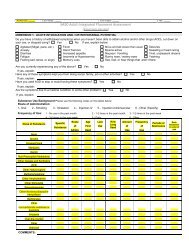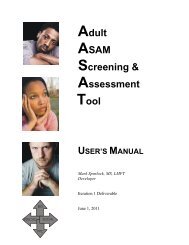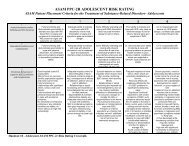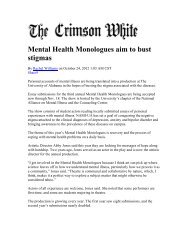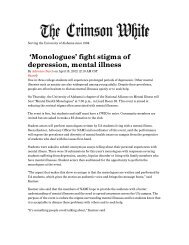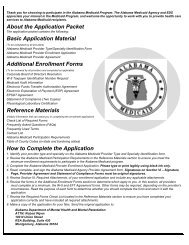Serving Severely Emotionally Disturbed Deaf Youth - Alabama ...
Serving Severely Emotionally Disturbed Deaf Youth - Alabama ...
Serving Severely Emotionally Disturbed Deaf Youth - Alabama ...
You also want an ePaper? Increase the reach of your titles
YUMPU automatically turns print PDFs into web optimized ePapers that Google loves.
Statewide <strong>Deaf</strong> Children’s Services Page 18provide family interventions, for example. They also have to be mindful ofthe implications for the school when a student becomes a danger tothemselves or other students which means alternative placement has tobe sought.On the other hand, in <strong>Alabama</strong>, many deaf children, outside of ASD,receive services from their local community mental health centers(CMHCs.) The authors have found repeatedly staff members at CMHCsand DHR are not prepared to work with deaf children with emotional andbehavioral disorders. Too often these clinicians and caseworkers areunfamiliar with deafness and its psychosocial implications. They are notaware that the treatment process needs to be modified to fit the deaf child.There are special nuances to watch out for. For example, somemedications in high doses cause visual side effects which can affect thedeaf child’s ability to understand another person’s signing (Hindley, 1999).CMHCs and staff members with little experience with deafness may notfully understand the implications of using an interpreter. For them, treatinga deaf child simply means contracting with the local interpreter referralagency. Clinicians may not understand that the very presence of aninterpreter completely alters the dynamics of the treatment. Having a thirdperson in the room changes the landscape of transference andcountertransference and alliances (Hamerdinger & Karlin, 2003).






